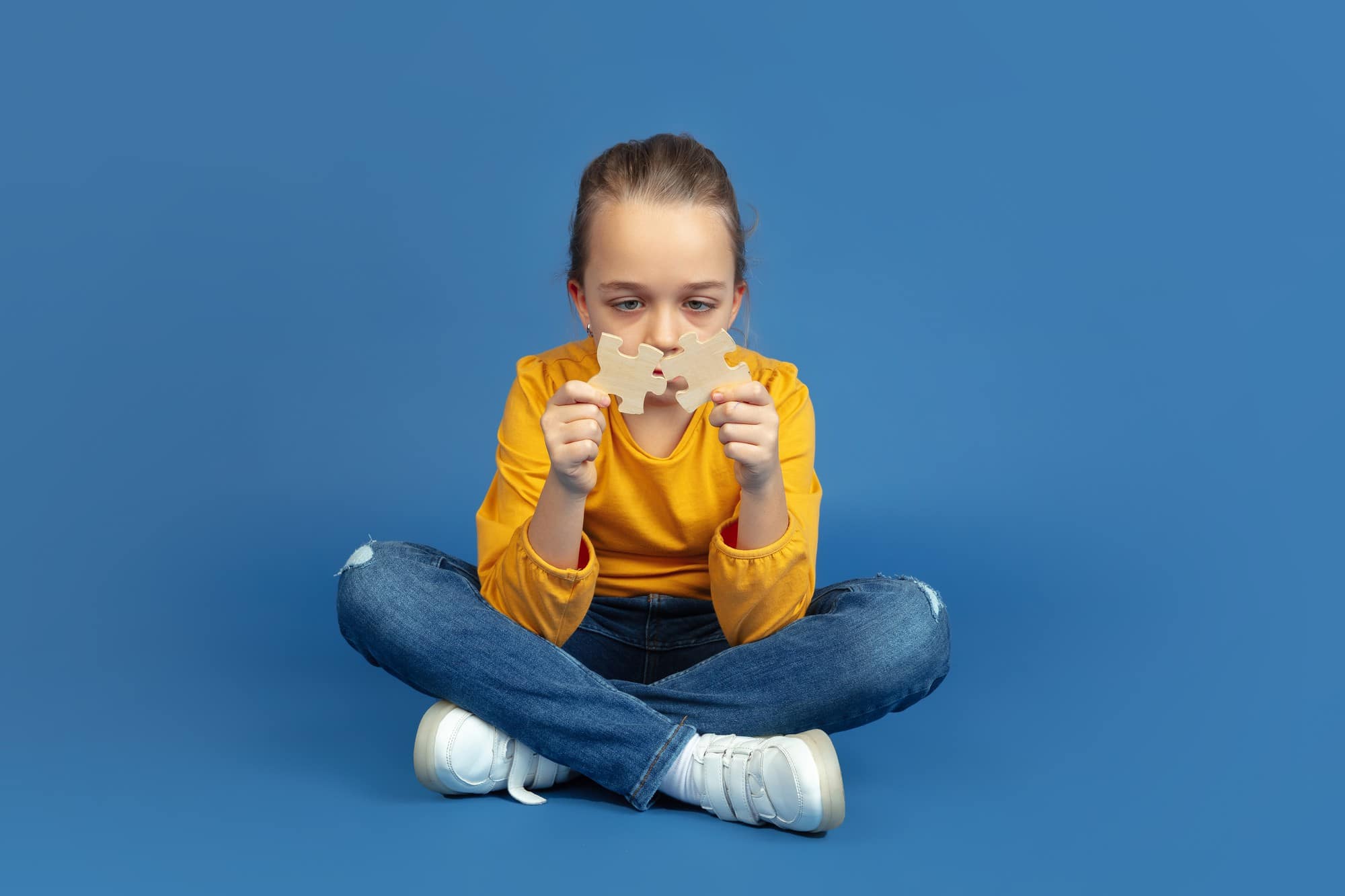A Dental Visit Guide for Children with Autism and Sensory Issues: Creating Positive Experiences
Dental care is essential for every child’s health and well-being, but for children with autism spectrum disorder (ASD) or sensory processing issues, a routine dental visit can present significant challenges. The dental environment—with its bright lights, unfamiliar sounds, strange tastes, and physical sensations—can be overwhelming for children who experience the world differently. As parents in Dubai seek inclusive healthcare options for their children, understanding how to prepare for and navigate dental visits becomes crucial. At myPediaClinic, we recognize that children with autism and sensory sensitivities require thoughtful, individualized approaches to healthcare. This comprehensive guide will provide parents with practical strategies, insights, and resources to help their children have successful dental experiences while maintaining optimal oral health.
Understanding the Challenges of Dental Visits for Children with Autism
Before diving into strategies and solutions, it’s important to understand why dental visits can be particularly challenging for children with autism and sensory processing differences. This understanding helps parents and dental professionals develop appropriate accommodations and approaches.
Sensory Sensitivities in the Dental Setting
Children with autism often experience sensory input differently than neurotypical children. The dental office presents a multitude of sensory stimuli that can be overwhelming. Visual stimuli include bright overhead lights, reflective surfaces, unfamiliar equipment, and masks and protective gear on dental staff. Auditory stimuli encompass the high-pitched whine of dental drills, suction devices, water sprays, background music or conversation, and the echo in tiled rooms. Tactile sensations include gloved hands in the mouth, dental instruments touching teeth and gums, vibrations from cleaning and drilling, and the texture of dental materials. Olfactory inputs involve antiseptic smells, fluoride and other dental products, and unfamiliar chemical odors. Taste stimuli include fluoride treatments, polishing paste, and latex or nitrile from gloves. For a child with sensory processing differences, any or all of these stimuli can trigger discomfort, anxiety, or even meltdowns.
Communication Challenges
Many children with autism have difficulty with verbal communication, which can complicate dental visits in several ways. They may struggle to express discomfort, pain, or fear, understand verbal instructions from the dentist, communicate when they need a break, and describe symptoms or dental problems. Even children who are verbally fluent may have difficulty processing complex instructions or communicating under stress.
Need for Predictability and Routine
Children with autism often thrive on predictability and may become anxious when facing new or unpredictable situations. Dental visits involve many unfamiliar elements: new environments, unfamiliar people, unpredictable procedures, waiting in unfamiliar spaces, and variations in appointment length and activities. This unpredictability can increase anxiety and make cooperation more difficult.
Difficulty with Transitions and Changes
Moving through different stages of a dental visit—from the waiting room to the examination room, from sitting in the chair to lying back, from one procedure to another—requires multiple transitions. Children with autism may struggle with these transitions, needing extra time and support to move from one activity to the next.
Preparing for a Dental Visit: Strategies for Success
Thorough preparation is perhaps the most important factor in creating a successful dental experience for children with autism. The more familiar and predictable the visit can be made in advance, the better equipped your child will be to cope with the experience.
Finding the Right Dental Provider
The first step in preparation is finding a dental provider who is experienced in working with children with autism and sensory issues. When searching for a dentist in Dubai, look for pediatric dentists or those with special needs training, providers who offer sensory-friendly accommodations, offices willing to schedule appointments during quieter times, dental teams who demonstrate patience and flexibility, and practitioners who welcome pre-visit orientation sessions. The team at myPediaClinic can provide referrals to dental providers experienced in treating children with special needs.
Communication with the Dental Office
Before the appointment, communicate with the dental office about your child’s specific needs. Share information about your child’s sensory sensitivities and triggers, communication style and preferred methods, successful strategies used in other healthcare settings, behaviors that might occur under stress, and any specific fears or concerns. Provide written documentation if helpful, and ask what accommodations the office can provide.
Social Stories and Visual Supports
Social stories are short narratives that describe a situation, concept, or social skill using pictures and simple language. Creating a social story about dental visits can help your child understand what to expect. A dental visit social story might include pictures of the dental office exterior and interior, images of dental tools with simple explanations, step-by-step description of what happens during a visit, reassuring messages about the purpose of dental care, and information about who will be present and what they will do. Review the social story multiple times before the appointment, and bring it along on the day of the visit. Many dental offices have their own visual resources they can share in advance.
Practice Visits and Desensitization
For children with significant anxiety, gradual desensitization can be very helpful. This might involve first visiting the dental office just to look around and meet staff, then sitting in the dental chair without any examination, followed by allowing the dentist to count teeth without using instruments, and gradually introducing more elements of a full examination over multiple visits. This approach requires patience and may extend over several weeks or months, but it can establish a foundation for successful dental care throughout your child’s life.
At-Home Dental Practice
Practicing dental procedures at home can help children become familiar with the sensations involved. Activities might include regular tooth brushing to maintain oral health and familiarity with mouth sensations, using a battery-powered toothbrush to introduce vibration similar to dental instruments, playing “dentist” with stuffed animals or dolls, practicing opening wide and keeping the mouth open, using a small flashlight to look in the mouth, and letting your child handle and explore dental tools (child-safe versions or actual instruments if provided by your dentist).
Timing and Scheduling Considerations
When scheduling the appointment, consider your child’s best time of day for cooperation, quieter times at the dental office, appointment length (shorter may be better, or longer if extra time is needed for transitions), whether first or last appointments might work better (avoiding waiting room time), and any regular routines or activities that shouldn’t be disrupted.
Creating a Sensory-Friendly Dental Experience
Addressing sensory challenges is central to creating successful dental visits for children with autism and sensory processing issues. Both parents and dental providers can implement strategies to minimize sensory overload.
Managing Visual Stimuli
Bright dental lights and visual clutter can be overwhelming for sensitive children. Strategies to manage visual stimuli include using sunglasses to reduce the intensity of overhead lights, providing a small object or picture to focus on instead of the unfamiliar environment, dimming lights when possible, removing unnecessary items from the child’s field of vision, using weighted blankets or lap pads that also provide visual “grounding,” and allowing the child to close their eyes or use an eye mask if comfortable.
Managing Auditory Stimuli
The sounds of dental equipment can be particularly distressing. Approaches to manage auditory stimuli include using noise-canceling headphones or ear defenders, playing preferred music through headphones, warning the child before turning on noisy equipment, introducing sounds gradually and allowing time to adjust, choosing a quiet examination room away from other patients, and explaining what different sounds mean so they become less frightening.
Managing Tactile Sensations
Touch sensitivity in and around the mouth requires careful management. Strategies include using consistent, firm pressure rather than light touch (which can feel ticklish or irritating), warming dental instruments before use when possible, allowing the child to touch and handle instruments before they’re used in their mouth, using the “tell-show-do” technique where each step is explained and demonstrated before being performed, providing opportunities to rinse and spit frequently, and offering a stress ball or fidget toy to hold during the examination.
Managing Olfactory and Taste Sensations
Dental offices have distinctive smells that some children find overwhelming. To address this, consider allowing the child to bring a familiar scented item (like a favorite blanket), choosing unflavored or child-preferred flavors for dental products, using the least strongly scented products available, ventilating the room before the appointment if possible, and allowing breaks if smells become overwhelming.
Proprioceptive and Vestibular Considerations
Lying back in the dental chair affects balance and body position sense, which can be distressing for some children. Helpful approaches include reclining the chair slowly and gradually, using a weighted blanket or vest for calming pressure, allowing the child to keep their feet on a footrest for stability, raising the chair back periodically if the reclined position is difficult, and considering whether side-lying or semi-reclined positions might work better.
Accommodations and Adaptations in the Dental Office
Many dental offices serving children with special needs offer specific accommodations. Understanding what’s available helps parents advocate for their children’s needs.
Environmental Modifications
Dental offices can make physical modifications to create a more comfortable environment. These might include quiet waiting areas separate from the main waiting room, sensory toys or activities in waiting areas, adjustable lighting in treatment rooms, visual schedules posted in treatment areas, and calming colors and decor throughout the office.
Scheduling Accommodations
Flexible scheduling can make a significant difference. Options include first appointments of the day before the office becomes busy, appointments during typically slower periods, longer appointment slots to allow for extra time, multiple short appointments rather than one long one, and same-day appointments if waiting causes excessive anxiety.
Communication Adaptations
Dental teams can adapt their communication style to meet each child’s needs. This includes using simple, concrete language, allowing extra processing time after instructions, using visual aids and demonstrations, checking in frequently about comfort and needs, establishing a clear signal for “stop” or “break,” and involving the child in decisions when appropriate.
Behavioral Supports
Behavioral supports can help children manage anxiety and cooperate with dental care. These might include positive reinforcement for cooperation, breaking procedures into small, manageable steps, frequent praise and encouragement, using preferred items or activities as motivation, allowing movement breaks between procedures, and providing choices when possible to give the child some control.
Specialized Techniques for Dental Care in Children with Autism
Dentists who work with children with autism often use specialized techniques to make care more accessible and comfortable.
The Tell-Show-Do Technique
This foundational technique involves explaining each step in simple language before it happens (tell), demonstrating the action using a model, the child’s finger, or another non-threatening approach (show), and then performing the actual procedure (do). This approach reduces surprise and helps the child anticipate what’s coming, which can significantly reduce anxiety.
Systematic Desensitization
For children with dental anxiety, systematic desensitization involves gradually exposing the child to increasingly challenging aspects of dental care. This might progress from entering the office, to sitting in the chair, to having instruments in the mouth, to actual procedures, with each step only attempted when the child has become comfortable with the previous one.
Protective Stabilization
In some cases, gentle physical stabilization may be necessary to keep a child safe during dental procedures. This should only be used when necessary, with parental consent, and by trained professionals. Alternatives like weighted blankets or papoose boards should be explored, and the child’s wellbeing and dignity must always be maintained.
Sedation Options
When behavioral approaches are insufficient, sedation may be considered. Options include nitrous oxide (laughing gas) for mild anxiety and minor procedures, oral sedation for moderate anxiety, and general anesthesia for extensive procedures or children who cannot cooperate safely. The decision to use sedation should be made carefully, considering the child’s overall health, the extent of dental work needed, previous responses to dental care, and the risks and benefits of sedation. Consultation with your pediatrician is important when considering sedation for dental care.
Building a Long-Term Dental Care Routine
Successful dental care for children with autism requires ongoing attention to oral hygiene and regular dental visits. Building sustainable routines is essential.
Daily Oral Hygiene Routines
Establishing consistent oral hygiene habits at home supports dental health and makes professional visits easier. Strategies for building effective routines include making tooth brushing part of a predictable daily schedule, using visual schedules or timers to structure brushing time, finding a toothbrush (manual, electric, or character-themed) that works for your child, experimenting with different toothpaste flavors and textures, using apps or videos designed to make tooth brushing engaging, considering adaptive tools like angled brushes or three-sided brushes, and gradually introducing flossing using floss picks or water flossers if traditional floss is difficult.
Dietary Considerations for Oral Health
Many children with autism have restricted diets or strong food preferences, which can impact oral health. To support dental health while respecting dietary needs, limit sugary foods and drinks when possible, offer water rather than juice or soda, provide crunchy vegetables and fruits that help clean teeth, avoid sticky candies and snacks that cling to teeth, schedule treats around mealtimes rather than as frequent snacks, and work with a nutritionist if dietary restrictions are significant.
Regular Dental Visits
Maintaining regular dental appointments (typically every six months) is important for children with autism. Regular visits help maintain familiarity with the dental office and staff, allow for early detection and treatment of problems, prevent the need for more extensive (and potentially more challenging) procedures, and build positive associations with dental care over time. If your child’s anxiety makes standard scheduling difficult, work with the dental office to find a frequency that balances oral health needs with your child’s ability to cope.
Addressing Common Dental Issues in Children with Autism
Children with autism may be at increased risk for certain dental issues due to dietary factors, medication side effects, and challenges with oral hygiene.
Tooth Decay and Cavities
Restricted diets often high in carbohydrates and sugars, combined with difficulties brushing effectively, can increase cavity risk. Prevention strategies include thorough daily brushing (with assistance if needed), fluoride treatments at dental visits and fluoride toothpaste at home, dental sealants to protect molars, regular professional cleanings, and dietary modifications when possible.
Gum Disease
Difficulty with thorough oral hygiene can lead to gum inflammation and disease. Signs to watch for include red, swollen, or bleeding gums, persistent bad breath, and gums that are pulling away from teeth. Treatment involves improved oral hygiene, professional cleanings, and potentially antimicrobial rinses or other treatments.
Bruxism (Teeth Grinding)
Teeth grinding is common in children with autism and can lead to worn teeth, jaw pain, headaches, and disrupted sleep. Treatment may include night guards or mouth guards, stress reduction techniques, and addressing underlying anxiety.
Oral Fixation and Chewing Behaviors
Some children with autism engage in oral fixation behaviors such as chewing on non-food items, which can damage teeth and oral tissues. Safe alternatives include silicone chew toys or jewelry designed for oral sensory needs, crunchy foods that provide oral input, and consultation with an occupational therapist for sensory strategies.
Medication-Related Dental Issues
Some medications commonly prescribed for children with autism can affect oral health. Dry mouth is a side effect of many medications and increases cavity risk. Gingival hyperplasia (gum overgrowth) can occur with certain seizure medications. Taste changes from medications may affect eating habits. Discuss potential dental side effects with your pediatrician and dentist, and take preventive measures as needed.
Supporting Your Child Through Difficult Dental Experiences
Despite best efforts, some dental visits will be challenging. Having strategies to manage difficult experiences helps both parent and child cope.
Recognizing Signs of Distress
Children with autism may not express distress in typical ways. Signs to watch for include increased stimming behaviors, attempts to escape or avoid, covering ears, eyes, or mouth, becoming very still or “frozen,” escalating vocalizations, physical resistance, and changes in breathing or facial expression.
De-escalation Strategies
When distress occurs, strategies to help include taking a break from the procedure, offering comfort items or preferred activities, using calming techniques practiced at home (deep pressure, rhythmic movement, etc.), speaking calmly and reassuringly, reducing sensory input (dimming lights, removing equipment), and giving the child control over when to resume.
Knowing When to Stop
Sometimes the best decision is to end an appointment early. This is appropriate when distress reaches a level that cannot be managed, when continuing would create trauma that affects future dental care, when the child’s or staff’s safety is at risk, or when no meaningful dental work can be accomplished. Ending an appointment is not a failure—it’s a recognition that the child has reached their limit and that pushing further would be counterproductive.
Processing the Experience Afterward
After a dental visit, help your child process the experience by acknowledging their feelings and efforts, focusing on positive aspects of the visit, using social stories or visual supports to review what happened, discussing what might be different next time, and celebrating accomplishments and progress. Even challenging visits can be learning experiences that inform better approaches for the future.
Resources and Support for Families
Families of children with autism can benefit from various resources and support systems related to dental care.
Professional Resources
Healthcare providers who can help include your child’s pediatrician for referrals and coordination of care, pediatric dentists with special needs experience, pediatric dental specialists (for complex cases), occupational therapists who can address sensory issues, and behavioral therapists who can help develop coping strategies.
Educational Resources
Many organizations provide educational materials about dental care for children with autism. These include downloadable social stories and visual supports, videos demonstrating dental procedures, webinars and workshops for parents, and training materials for dental professionals.
Parent Support Networks
Connecting with other parents facing similar challenges can be invaluable. Seek out local autism support groups in Dubai and the UAE, online communities focused on autism and healthcare, parent-to-parent mentoring programs, and social media groups where parents share experiences and recommendations.
Frequently Asked Questions About Dental Care for Children with Autism
How do I find a dentist in Dubai who works with children with autism?
Start by asking your pediatrician for referrals to pediatric dentists with experience in special needs care. You can also contact autism support organizations in the UAE for recommendations. When evaluating potential dentists, ask about their experience with children on the autism spectrum, what accommodations they offer, whether they allow pre-visit orientations, and their approach to managing sensory sensitivities. A good match is essential for successful dental care.
What should I tell the dentist about my child before the appointment?
Provide detailed information about your child’s specific sensory sensitivities, communication abilities and preferred methods, successful strategies used in other settings, triggers that cause distress, calming techniques that work for your child, any medical conditions or medications, previous dental experiences (positive and negative), and preferred reinforcements or rewards. Written documentation can be helpful, and consider sharing this information in advance so the dental team can prepare.
My child won’t let anyone brush their teeth. How can I improve oral hygiene at home?
Start with gradual desensitization—let your child handle the toothbrush, touch it to their lips, then teeth, progressing slowly. Try different types of brushes (electric, manual, three-sided) and toothpastes. Use visual schedules and timers. Consider having an occupational therapist assess oral sensory issues. Some children do better with apps or songs that make brushing more engaging. Consistency with timing and routine helps. If brushing remains impossible, consult your dentist about alternatives like mouth rinses or professional cleaning frequency.
Is sedation safe for dental work in children with autism?
Sedation can be safe and appropriate when administered by qualified professionals with proper monitoring. Options range from mild sedation (nitrous oxide) to general anesthesia for extensive work. The decision should consider your child’s overall health, the extent of dental work needed, other options available, and the risks and benefits. Discuss sedation options with both your pediatrician and dentist. Some children do better with sedation that allows necessary work to be completed, while others can gradually learn to tolerate dental care without it.
How can I prepare my child for their first dental visit?
Preparation should start weeks before the appointment. Use social stories with pictures of the dental office. Practice dental activities at home—counting teeth, opening wide, using a flashlight to look in the mouth. Play “dentist” with stuffed animals. Watch age-appropriate videos about dental visits. Visit the dental office beforehand if possible to familiarize your child with the environment. Explain what will happen using simple, honest language. On the appointment day, bring comfort items and follow familiar routines as much as possible.
What accommodations can I request at the dental office?
Common accommodations include scheduling during quieter times, waiting in the car instead of the waiting room, dimming lights in the treatment room, allowing noise-canceling headphones, providing a weighted blanket, using unflavored products when possible, allowing extra time for transitions, taking frequent breaks, using visual schedules, and permitting comfort items from home. Not all offices can provide all accommodations, so discuss your specific needs and priorities when scheduling.
What if my child has a meltdown at the dentist?
First, stay calm yourself—your child picks up on your stress. Ask the dentist to pause the procedure. Use calming strategies that work for your child at home. Remove or reduce sensory input if possible. Give your child time and space to regulate. It’s okay to end the appointment if the meltdown cannot be resolved—forcing continuation often creates trauma that makes future visits harder. Afterward, discuss with the dental team what triggered the meltdown and how to prevent it next time. Progress may require multiple visits with gradual exposure.
How often should my child with autism see the dentist?
The standard recommendation is every six months, but this may need adjustment based on your child’s needs. If oral hygiene at home is challenging, more frequent professional cleanings may help prevent problems. If dental visits are extremely difficult, you might start with more frequent, shorter visits focused on desensitization before attempting full examinations. Children at higher risk for dental problems may need to be seen more often. Work with your dentist to find a schedule that balances oral health needs with your child’s ability to cope with visits.
Conclusion: Empowering Positive Dental Experiences
Dental care for children with autism and sensory issues requires patience, preparation, and partnership between families and dental professionals. While the challenges are real, they are not insurmountable. With the right approaches, most children with autism can receive the dental care they need to maintain healthy teeth and gums throughout their lives.
The key elements of success include finding dental providers who understand autism, preparing thoroughly for each visit, implementing sensory accommodations, using specialized techniques appropriate to your child’s needs, building sustainable oral hygiene routines at home, and maintaining regular dental care to prevent problems. Remember that progress may be gradual. Celebrate small victories and learn from challenges. Each positive dental experience builds toward better oral health and reduced anxiety for future visits.
Comprehensive Pediatric Care for Children with Special Needs at myPediaClinic
At myPediaClinic, we understand the unique healthcare needs of children with autism and sensory processing differences. Our experienced pediatric team provides compassionate, individualized care and can help connect your family with dental providers and other specialists who have experience working with children on the autism spectrum.
Whether you need guidance on preparing for dental visits, referrals to appropriate specialists, or comprehensive pediatric care for your child with special needs, we’re here to support your family. Our goal is to ensure every child receives the healthcare they need in an environment that respects their individual differences and promotes positive experiences.
Contact myPediaClinic today to schedule a consultation and learn how we can support your child’s health and well-being.





